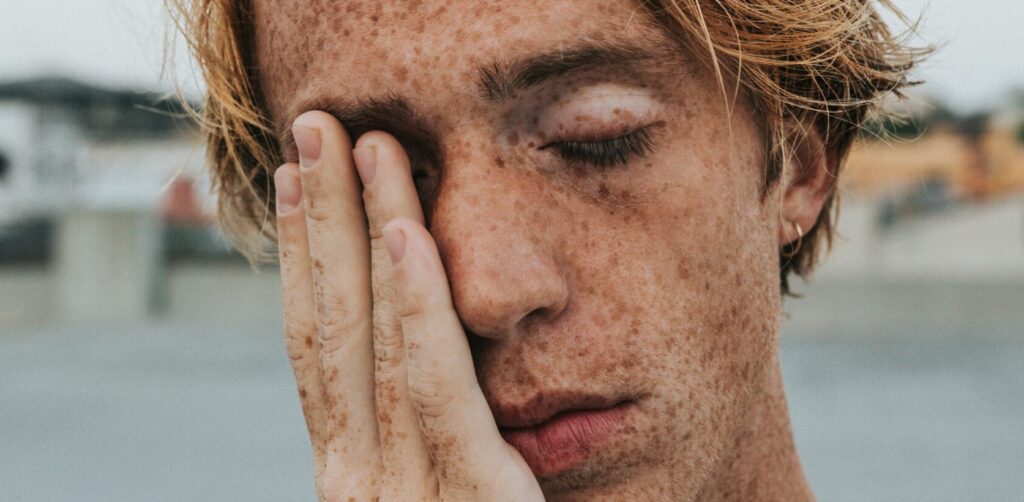How Sleep Deprivation Impacts Your Health

Have you ever stayed up late, thinking that missing a few hours of sleep won’t hurt? Maybe you’ve pulled an all-nighter for work, school, or just to finish a binge-worthy show. While it might seem harmless, not getting enough sleep over time can lead to serious problems. From feeling forgetful to getting unexpected breakouts on your skin, the long-term effects of little sleep go beyond just feeling tired the next day. In this article, we’ll look at how sleep deprivation affects your body and mind, and we’ll share simple ways to improve your sleep habits.
What Happens When You Don’t Sleep Enough?
Sleep is super important for your body and mind. Most adults need 7 to 9 hours of sleep every night, but many people get less. When you don’t sleep enough for a long time, it can cause problems that get worse over time.
How Sleep Deprivation Affects Your Brain and Mood
If you don’t get enough sleep, your brain doesn’t work as well. You might notice that you forget things easily or have trouble focusing. You might feel extra stressed or anxious, too.
Here’s how sleep affects your brain:
- Memory problems: When you don’t sleep enough, your brain has trouble storing memories.
- Slower thinking: It can take longer for you to process information and make decisions.
- More stress: You may feel irritable or anxious because your brain can’t handle stress as well without enough rest.
I used to think I could stay up all night to finish tasks, but I found that the next day, I could barely remember what I had read or done. Once I started sleeping more, I noticed how much more focused and calm I felt during the day.
If you’re interested in improving your cognitive function, check out our guide on the importance of sleep optimization for improved cognitive function.
Physical Health Risks from Long-Term Sleep Deprivation
Not sleeping enough can hurt your body, too. It can make you sick more often, increase your risk of getting heart disease, and even lead to weight gain.
Common problems from lack of sleep include:
- Weakened immune system: You may catch colds or infections more easily.
- Increased risk of heart disease: Not getting enough sleep can increase your chances of heart problems.
- Weight gain: Lack of sleep messes with hormones that control hunger, making you eat more.
How Lack of Sleep Affects Your Skin
You might not know this, but poor sleep can actually make your skin worse. When you don’t sleep enough, your body produces more stress hormones, which can lead to acne.
Here’s how sleep deprivation impacts your skin:
- Increased pimples: More stress hormones lead to oily skin and clogged pores, causing breakouts.
- Dull skin: Your skin doesn’t repair itself properly while you sleep, so it looks tired and dull.
- More wrinkles: If you don’t get enough sleep, your skin doesn’t produce enough collagen, which can make fine lines and wrinkles appear faster.
I’ve experienced this myself. After staying up late for work or study sessions, I started noticing pimples popping up on my face. When I started making sleep a priority, my skin cleared up, and I felt more refreshed.
The Side Effects of an All-Nighter
Pulling an all-nighter (staying up all night) might seem like a quick fix to finish tasks, but it can have serious side effects. Your brain will be foggy the next day, and you’ll have trouble focusing.
What happens after staying up all night?
- Slower reaction times: You might not respond as quickly to things happening around you.
- Bad decisions: You may make mistakes because your brain is tired and not thinking clearly.
- Increased stress: You’ll feel more anxious because your body’s stress levels go up when you don’t sleep.
I remember staying up all night before exams, and the next day I couldn’t focus at all. My brain felt slow, and I made careless mistakes. After learning about the effects of sleep deprivation, I stopped doing all-nighters, and my performance improved.
How to Improve Your Sleep
Getting enough sleep doesn’t have to be difficult. Here are a few simple tips you can follow to start getting better rest tonight:
- Go to bed at the same time every night: Try to stick to a regular sleep schedule, even on weekends.
- Turn off screens: Avoid using your phone or computer for at least an hour before bed. The blue light can make it harder to fall asleep.
- Create a calming bedtime routine: Read a book, listen to soothing music, or do some gentle stretches to help you wind down.
- Exercise during the day: Moving your body can help you sleep better at night.
- Avoid caffeine late in the day: Try not to drink coffee or energy drinks after 3 PM.
Conclusion
The long-term effects of little sleep are serious and can affect both your mind and body. From difficulty focusing and feeling stressed to getting acne and gaining weight, lack of sleep can have a big impact on your life. But the good news is that by improving your sleep habits, you can start feeling better. Remember, prioritizing sleep isn’t just about resting it’s about taking care of your health and well-being. Start small by making some of these changes tonight, and you’ll notice improvements in how you feel and look. Sleep is one of the easiest and most important ways to stay healthy!
